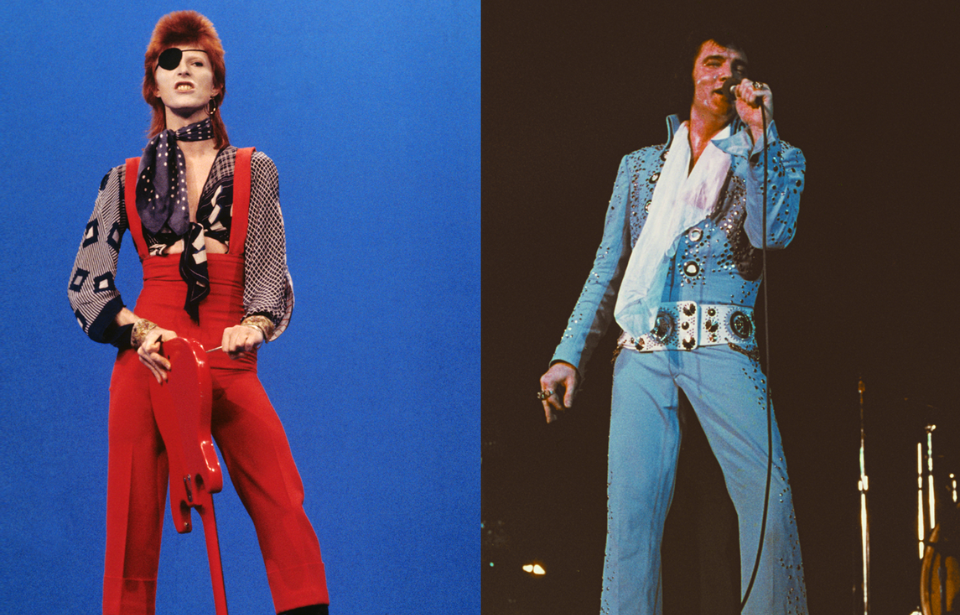David Bowie was a huge fan of Elvis Presley. Elvis was truly the king to Bowie and many other artists of his generation, frequently cited as the spark that ignited an interest in performing and a gateway to the blues, country, and other indigenous American styles that shaped the evolving experimental rock and roll music of the sixties and seventies.
A ‘cosmic’ connection?
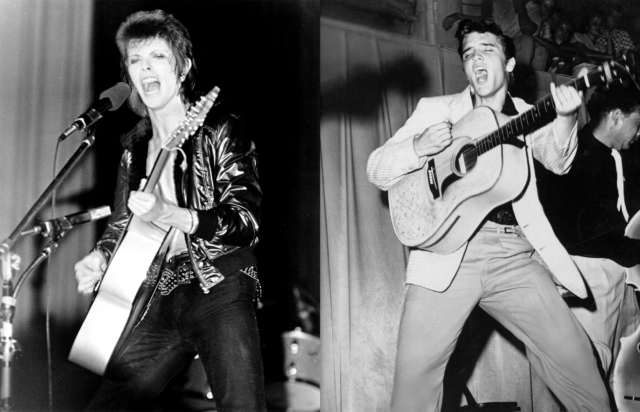
Bowie had a particular reverence for Presley, believing they had an extra-cosmic connection as the two shared the same birthday (January 8th), twelve years apart. To modern eyes, Presley may seem “square” in comparison to the way that Bowie handled his career and image, but they were truly cut from the same cloth.
Elvis drew attention to his bedroom eyes with smokey make-up and styled his dyed black hair into an almost impossible pompadour. In his day, he was seen as dangerously sexual and he also loved those flashy jumpsuits.
Bowie’s “Thin White Duke” persona places him squarely in the direct lineage of rock royalty with “The King.”
Taking Care of Business
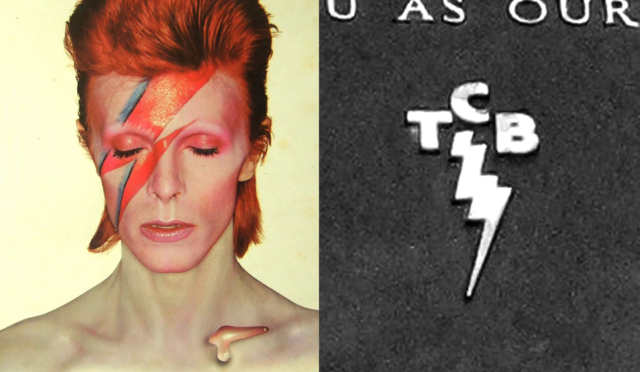
According to some sources, Bowie’s iconic lightning bolt make-up on the cover of his 1973 album, Aladdin Sane, was a direct tribute to Elvis’ famous T.C.B. (Taking Care of Business) lightning bolt logo that adorned various clothing and jewelry that the King and his Memphis Mafia wore.
Either that or it was taken from the logo from a National Panasonic rice cooker that was in the photo studio.
A missed meeting in 1972
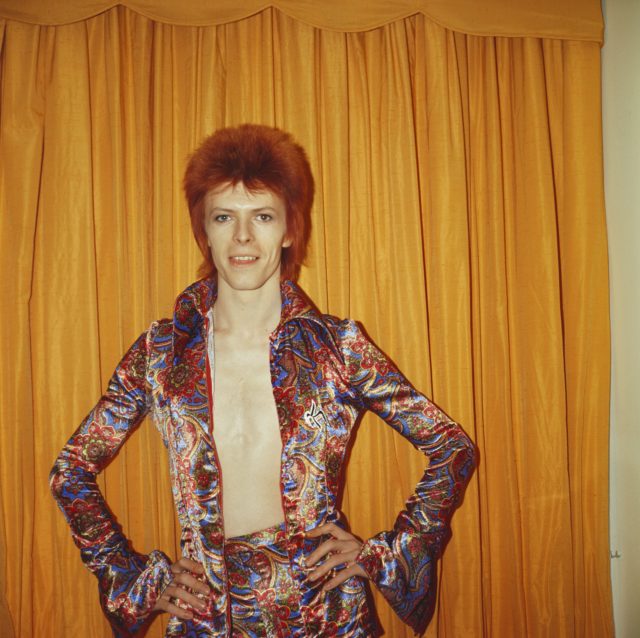
In David Bowie: The Golden Years, by Roger Griffin, Bowie recounts what he hoped might turn into a potential meeting at Presley’s New York debut at Madison Square Garden in 1972. “[Elvis] was a major hero of mine. And I was probably stupid enough to believe that having the same birthday as him actually meant something. I came over for a long weekend. I remember coming straight from the airport and walking into Madison Square Garden very late,” he said.
“I was wearing all my clobber from the Ziggy period and had great seats near the front. The whole place just turned to look at me and I felt like a right idiot. I had brilliant red hair, some huge padded space suits and those red boots with big black soles. I wished I’d gone for something quiet because I must have registered with him. He was well into his set.”
Bowie wrote many songs for other artists, including Elvis
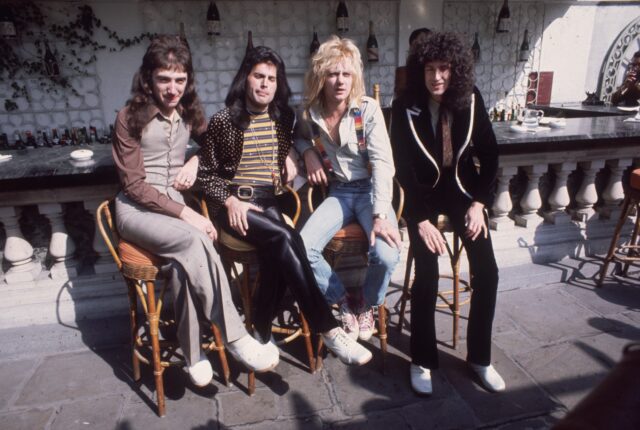
Throughout his life, Bowie was a songwriter first, the showmanship was just the icing on the cake. Despite the many hits he created for himself, he was famous for sharing his talent. Mott the Hoople’s “All the Young Dudes,” Iggy Pop’s “Lust for Life,” and Queen’s “Under Pressure” were all written or co-written by Bowie.
Considering Bowie’s obvious devotion, it might come as no surprise that “Golden Years,” his iconic top ten hit from the 1976 album, Station to Station, was originally pitched to his idol. They were both RCA artists and there was a push for the two to work together.
‘Golden Years’
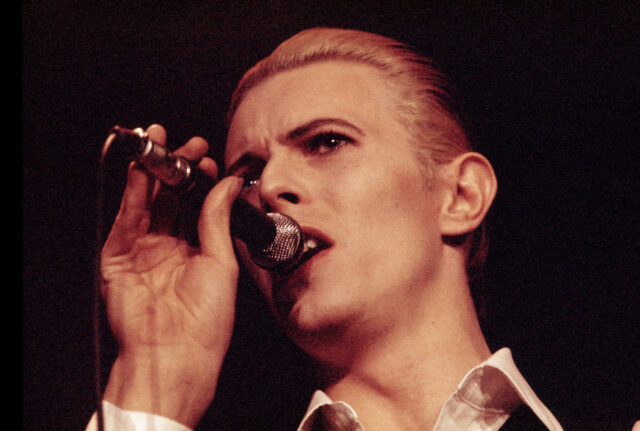
According to an interview with Bowie in Blender [August 2002]: 2002]: “Apparently Elvis heard the demos, because we were both on RCA, and Colonel Tom [Parker, Presley’s manager] thought I should write Elvis some songs. There was talk between our offices that I should be introduced to Elvis and maybe start working with him in a production-writer capacity. But it never came to pass. I would have loved to have worked with him. God, I would have adored it. He did send me a note once. [Perfectly imitates Presley’s drawl] ‘All the best, and have a great tour.’ I still have that note.”
So now we’re left with the knowledge that in some alternate universe, Elvis and David Bowie created a third comeback era for the original teen idol, where Elvis’ distinct voice can be heard singing, “Run for the shadows, run for the shadows, run for the shadows in these golden years.”
Angie Bowie says the song was about her
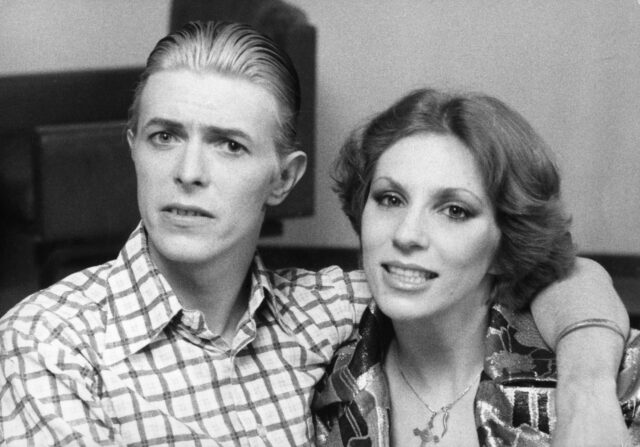
Angie Bowie, his wife at the time, has claimed “Golden Years” was written for her, but it’s probably safe to say that the truth is not mutually exclusive.
The act of songwriting is often not a linear process, and she could have inspired the lyrics (“Don’t let me hear you say life’s taking you nowhere, Angel”) while his intention was to make a song that might be a hit for Elvis.
Bowie’s last album might have contained a reference to Elvis
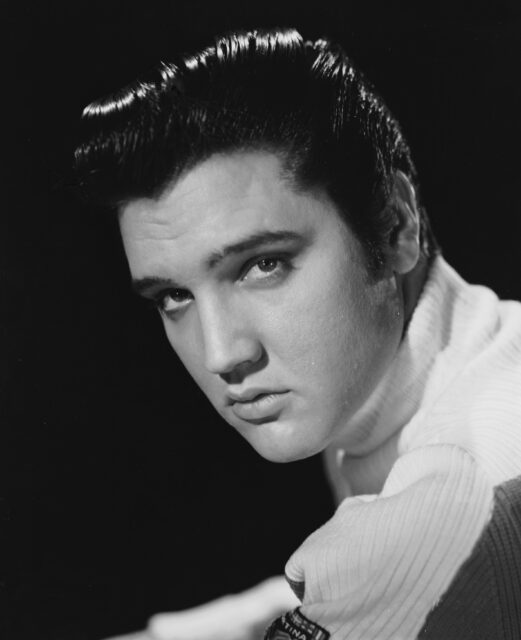
Even as his life was coming to an end, Bowie made one final reference to his hero. His farewell album and title track, Blackstar, released on his 69th birthday, just two days before his death, is most likely a reference to an obscure Elvis track, “Black Star.”
As Elvis sang:
Every man has a black star
A black star over his shoulder
And when a man sees his black star
He knows his time, his time has come.
More from us: Elvis Presley Played a Role in Elton John Becoming Sober
The song was recorded by Elvis for an abandoned movie production in 1960 and remained unreleased until the nineties.
